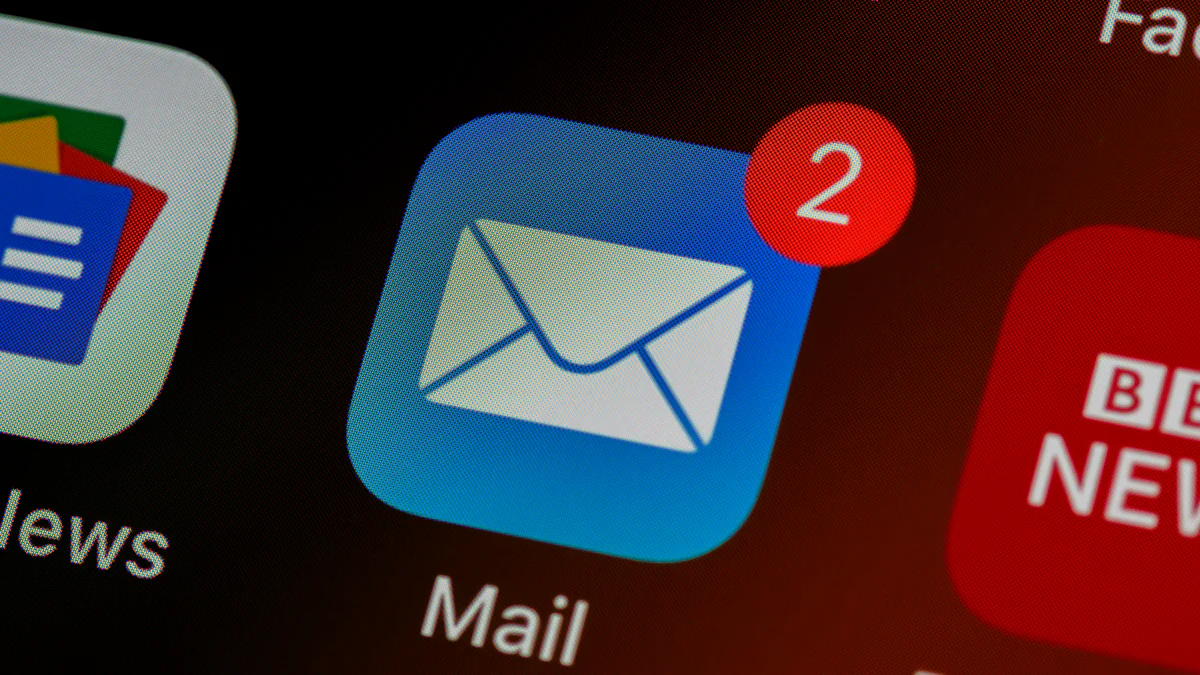
Kickstarting Your Journey with a Solid Marketing Plan and These Business Marketing Tips
As a small business owner, understanding the basics of Small Business Marketing is crucial for success. Let’s dive into why marketing matters for your small business and explore the power of free and low-cost strategies.
Understanding the Basics of Small Business Marketing
Why Marketing Matters for Your Small Business
Marketing plays a pivotal role in the growth and sustainability of a business. According to data, marketing efforts that utilize data for personalization can be worth five to eight times the ROI on marketing spend, and can increase subsequent sales by 10% or more. This highlights the significant impact that effective marketing can have on a business’s bottom line.
The Power of Free and Low-Cost Strategies
Many small businesses operate with limited budgets, making it essential to leverage free and low-cost marketing strategies. On average, most small businesses spend around 8% of their budget on marketing, emphasizing the importance of cost-effective approaches. Digital marketing has been identified as one of the most cost-effective strategies for growing small businesses, with digital ads generating up to 200% ROI. Additionally, 73% of small businesses are investing in social media marketing, indicating its effectiveness as a low-cost strategy.
Setting Your Marketing Goals
Identifying Your Target Audience
Identifying your target audience is fundamental to creating effective marketing campaigns. Understanding your audience’s demographics, preferences, and behaviors allows you to tailor your messaging for maximum impact. It’s noteworthy that 96% of small businesses involve social media in their marketing strategy in some way, highlighting the importance of understanding and engaging with your target audience through various channels.
Establishing Clear Objectives
Setting clear objectives is essential for guiding your marketing efforts. Whether it’s increasing brand awareness, driving website traffic, or boosting sales, having well-defined objectives provides direction and purpose to your marketing initiatives.
By grasping these fundamental aspects of small business marketing and recognizing the significance of free and low-cost strategies, you’re poised to kickstart your journey towards effective business promotion.
Harnessing the Power of the Web to Engage Potential Customers: Social Media Marketing Ideas, Product Marketing Ideas, and Email Marketing Ideas

In today’s digital age, creating a strong online presence is paramount for small businesses. This involves not only having a visually appealing website but also optimizing it for local search engine optimization (SEO). A user-friendly website with clear navigation and engaging content can significantly enhance your online visibility and customer experience. Additionally, optimizing your website for local SEO ensures that potential customers in your area can easily find and engage with your business.
Leveraging social media platforms is another powerful way to connect with your audience and offer them free insight into your daily life. Engaging with your community on Facebook allows you to build meaningful relationships with existing and potential customers. By sharing behind-the-scenes glimpses of your business and valuable content, you can foster a sense of authenticity and trust.
Utilizing Instagram presents an opportunity to showcase your products in a visually compelling manner. With its emphasis on captivating imagery, Instagram enables you to highlight the unique features of your products and engage with a broader audience.
Building Facebook communities further strengthens your online presence by providing a dedicated space for discussions, feedback, and updates. Regularly posting relevant content and responding to comments keeps the community engaged and fosters a sense of belonging among members.
By harnessing the power of the web through these social media marketing ideas, product marketing strategies, and email marketing initiatives, small businesses can effectively expand their reach without hefty financial investments.
Create and Run Local Facebook Ads
When it comes to reaching a targeted local audience, running local Facebook ads can be a game-changer for small businesses. With the right approach, these ads can significantly boost brand visibility and drive customer engagement.
Meta Business Suite and How to Get There
Utilizing Meta Business Suite provides small businesses with a centralized platform to manage their Facebook and Instagram accounts effectively. This suite offers tools for scheduling posts, responding to messages, and accessing insights into ad performance. By leveraging Meta Business Suite, small business owners can streamline their ad management process and gain valuable insights to optimize their marketing strategies.
Start Low and Test Your Ads
A prudent approach to running local Facebook ads involves starting with a modest budget and testing different ad variations. By allocating a low initial budget, small businesses can assess the performance of various ad creatives, messaging styles, and audience targeting parameters. This iterative testing allows businesses to refine their ads based on real-time data, ensuring that subsequent investments yield maximum impact.
Send That Email!: Email Marketing
Small businesses can harness the power of email marketing as a cost-effective way to engage with their audience and drive conversions. Leveraging email marketing platforms such as Klaviyo enables businesses to create personalized campaigns tailored to their customers’ preferences.
Klaviyo Free Membership
With Klaviyo’s free membership option, small businesses can access essential email marketing features without incurring additional costs. This includes tools for creating automated email flows, segmenting customer lists, and analyzing campaign performance. The free membership empowers small businesses to kickstart their email marketing initiatives without financial barriers.
Automating Email
Automating email campaigns through platforms like Klaviyo streamlines the process of delivering targeted content to customers at optimal times. By setting up automated workflows based on customer actions or lifecycle stages, small businesses can nurture leads and foster long-term customer relationships with minimal manual effort.
Using Canva for Email Design
Creating visually appealing email content is crucial for capturing recipients’ attention. Small businesses can leverage Canva‘s intuitive design tools to craft eye-catching email templates that align with their brand identity. From compelling graphics to engaging layouts, Canva empowers businesses to elevate the visual appeal of their email marketing efforts.
Using Google’s Free Tools and Google Ads: Effective Local Marketing Ideas
In today’s digital landscape, leveraging Google’s free tools and Google Ads can significantly enhance a small business’s local marketing efforts. These powerful resources offer cost-effective strategies to boost online visibility, engage with local audiences, and drive business growth.
Setting Up Google My Business/Google Business Profile for Enhanced Online Visibility
Establishing a robust presence on Google My Business is essential for maximizing local visibility and attracting potential customers. By optimizing your Business Profile with relevant information such as operating hours, contact details, and a compelling business description, you can ensure that your business stands out in local search results. Encouraging customer reviews and engagement further strengthens your online credibility and fosters trust among prospective customers.
According to insights from a Digital Marketing Expert, an optimized Business Profile plays a pivotal role in increasing visibility online for small and local businesses. This underscores the importance of investing time and effort into creating a comprehensive and appealing profile that resonates with your target audience.
Optimize Your Google Business Listing (*Important for Service Based Businesses!)
For service-based businesses, focusing on looking professional through an optimized Google Business Listing is paramount. This involves showcasing high-quality images of your services, accurately categorizing your business, and providing detailed information about the areas you serve. Additionally, responding to reviews promptly demonstrates your commitment to customer satisfaction and reinforces a positive brand image.
The insights from a Marketing Specialist emphasize the advantages of optimizing a Business Profile for effective local marketing. It highlights how presenting a professional image through your listing can significantly impact how potential customers perceive your business.
Run Google Ads for Cost-Effective Marketing
Running targeted Google Ads campaigns presents an opportunity for small businesses to reach local audiences with precision. By leveraging features such as Location Targeting and Local Services Ads, businesses can tailor their ads to specific geographic areas where their target customers are located. Monitoring ad performance metrics and adjusting ad content based on real-time data ensures that each advertising dollar yields maximum impact.
According to insights from interviews with Marketing Experts, strategic ad placements play a crucial role in effective local marketing strategies for small businesses. This underscores the significance of utilizing Google Ads as part of an integrated marketing approach to drive business growth.
By harnessing the capabilities of Google’s free tools and running targeted ads through Google Ads, small businesses can implement effective local marketing ideas without substantial financial investments.
Create Community Engagement and Build Loyalty to Your Business or Service

As a small business, fostering community engagement and building customer loyalty are fundamental aspects of sustainable growth. Let’s explore two impactful strategies for achieving these objectives: hosting local events and workshops, and managing your online reviews.
Hosting Local Events and Workshops Near or At Your Location
Partnering with Other Local Businesses
Collaborating with other local businesses to host joint events or workshops can be a powerful way to expand your reach and attract new customers. By partnering with complementary businesses in your area, you can leverage each other’s customer base and create mutually beneficial experiences for attendees. This collaborative approach not only fosters a sense of community among businesses but also provides attendees with diverse offerings, enhancing their overall experience.
Offering Free Workshops to Educate and Engage
Providing free educational workshops tailored to your products or services is an effective way to engage with your community while establishing your business as a valuable resource. These workshops can cover topics that address common pain points or interests within your target audience, positioning your business as an authority in its field. By delivering valuable content in a workshop setting, you can build trust with attendees and cultivate long-term relationships that extend beyond the event itself.
Hosting local events and workshops presents an opportunity to connect with potential customers on a personal level, showcase the value of your offerings, and position your business as an integral part of the community.
Managing Your Online Reviews (Search and Social Media)
Encouraging Happy Customers to Leave Reviews
Encouraging satisfied customers to leave positive reviews on platforms such as Google My Business can significantly enhance your online reputation and influence potential customers’ decisions. Research indicates that businesses using Google My Business effectively have major benefits for general search rankings, making it crucial for small businesses to actively seek positive feedback from satisfied customers. By providing exceptional service and requesting reviews from happy customers, you can bolster your credibility and attract new clientele.
Responding to Reviews Professionally
Responding promptly and professionally to both positive and negative reviews demonstrates your commitment to customer satisfaction. Addressing concerns raised in negative reviews shows potential customers that you are proactive in resolving issues and prioritizing customer happiness. Additionally, expressing gratitude for positive feedback reinforces the rapport with existing customers while portraying a responsive image to prospective clients.
By actively managing online reviews, small businesses can cultivate a favorable online reputation, build trust with their audience, and solidify their position within the local market.
Incorporating these strategies into your marketing efforts will not only strengthen community engagement but also contribute to building lasting loyalty among your customers.
Send it! Email Marketing: Crafting Personal Connections as a Small Business
Email marketing serves as a powerful tool for small businesses to establish and nurture personal connections with their audience. By leveraging creative email marketing ideas, businesses can effectively engage with customers and drive meaningful interactions.
Building Your Email List wit
Offering Incentives for Sign-ups
Encouraging individuals to join your email list can be incentivized through exclusive offers, such as discount codes, free resources, or entry into contests. Providing tangible benefits for sign-ups not only entices potential subscribers but also lays the foundation for ongoing engagement. Research from Lisa Anthony, a renowned digital marketing strategist, emphasizes the impact of offering compelling incentives in driving email list growth and fostering customer loyalty.
Creating Engaging Email Content
Crafting engaging email content is essential for capturing and retaining the attention of your subscribers. Utilize storytelling, visually appealing graphics, and personalized messaging to deliver value-driven content that resonates with your audience. A study conducted by Lisa Anthony revealed that engaging email content significantly contributes to higher open rates and click-through rates, ultimately driving conversions and brand affinity.
Personalizing Your Email Campaigns
Segmenting Your List for Targeted Messages
Segmenting your email list based on demographics, purchase history, or engagement levels allows you to tailor messages according to specific customer preferences and behaviors. By delivering targeted content that aligns with individual interests, small businesses can enhance the relevance of their emails and foster deeper connections with recipients. Case studies from various local businesses have demonstrated the effectiveness of segmenting email campaigns in driving higher engagement and conversion rates.
Measuring Email Campaign Success
Measuring the success of your email campaigns involves tracking key metrics such as open rates, click-through rates, conversion rates, and overall subscriber growth. Analyzing these metrics provides valuable insights into the performance of your campaigns and enables data-driven optimizations for future initiatives. According to industry expert Lisa Anthony’s research findings, consistent measurement and analysis are integral to refining email marketing strategies and achieving sustained success.
By strategically building an engaged email list, creating compelling content, personalizing campaigns through segmentation, and measuring campaign performance diligently, small businesses can harness the full potential of email marketing to cultivate lasting relationships with their audience.
Wrapping Up: Small Business Marketing Ideas
Evaluating What Works and What Doesn’t
As a small business owner, it’s crucial to continually evaluate the effectiveness of your marketing efforts. Keeping track of your marketing initiatives allows you to identify what resonates with your audience and what doesn’t. By analyzing key performance indicators such as engagement rates, conversion metrics, and customer feedback, you can gain valuable insights into the impact of your marketing strategies.
Personal Experience:
I’ve learned that tracking the success of my marketing campaigns has been instrumental in understanding which approaches yield the best results for my business. It’s essential to monitor not only the quantitative data but also qualitative feedback from customers to gauge their perception of our marketing efforts.
Utilizing data-driven insights enables small businesses to make informed decisions about their future marketing endeavors. By identifying successful tactics and areas for improvement, businesses can refine their strategies for optimal impact.
Next Steps: Taking Action
After evaluating the performance of your marketing activities, it’s time to take action based on your findings. Prioritizing your marketing activities involves allocating resources to initiatives that have demonstrated positive outcomes. This may involve reallocating budget towards high-performing strategies or exploring new avenues based on emerging trends and consumer preferences.
Staying committed and consistent is paramount in maintaining the momentum of your marketing efforts. Consistency in messaging, branding, and customer engagement fosters trust and reliability among your audience. By consistently delivering value through your marketing initiatives, you reinforce your brand’s presence in the minds of potential customers.
Marketing Statistics Expert:
Personalization is critical to a successful email marketing campaign. Over 60% of retail, e-commerce, and consumer goods and services companies personalize their emails based on past purchases.
Email Marketing Specialist:
Personalized storytelling directly to your audience’s inbox fosters a more intimate connection.
Incorporating personalized storytelling into email campaigns can foster a deeper connection with recipients by delivering tailored content that resonates with individual interests.
See Also
Optimizing Website Traffic Using Google Analytics: An In-Depth Manual
2024: Achieving Success as a Content Creator: Enrolling in a Mentorship Initiative



